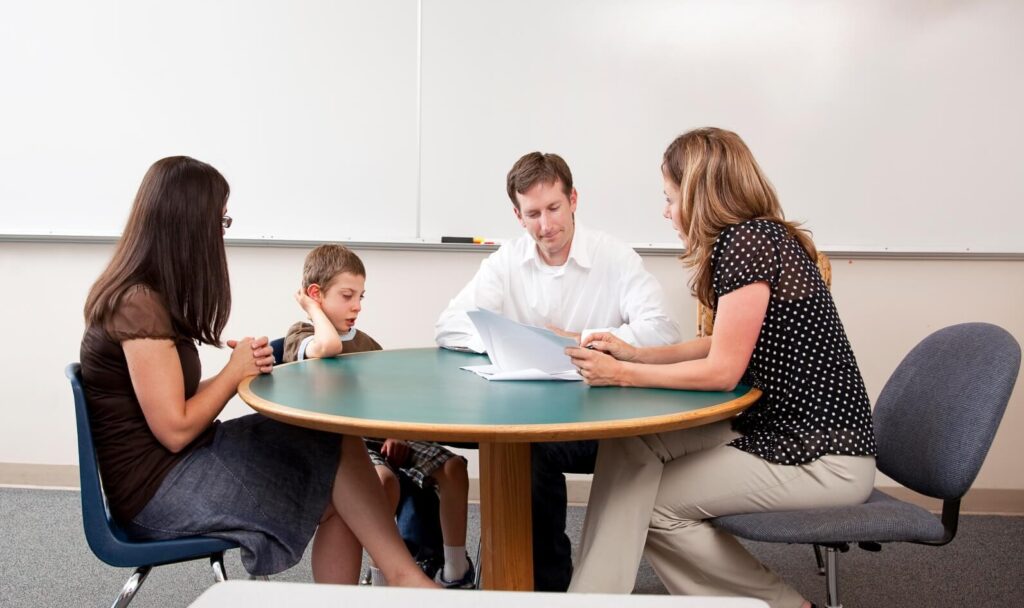
The Crucial Role of Parent-Teacher Relationships in Preschool Education
November 24, 2023
Preschool education lays the groundwork for a child’s academic journey, and one of the cornerstones of a successful early learning experience is a strong partnership between parents and teachers. The dynamic interplay between these two essential components fosters an environment where children can thrive emotionally, socially, and academically. In this article, we’ll delve into the pivotal role of parent-teacher relationships in preschool education and explore the myriad benefits that arise from this collaborative approach.
Building Trust and Communication:
At the heart of any successful partnership is trust and open communication. For preschoolers, the transition from home to school can be both exciting and challenging. A strong parent-teacher relationship helps bridge this gap by creating a seamless continuum between home and school life. Regular communication channels, such as parent-teacher conferences, newsletters, and digital platforms, enable both parties to stay informed about a child’s progress, challenges, and achievements.
Understanding Individual Needs:
Every child is unique, and understanding their individual needs is paramount for effective learning. Through ongoing communication, parents and teachers can share insights into a child’s personality, learning style, and preferences. This collaborative understanding allows educators to tailor their teaching methods, creating a personalized learning experience that addresses each child’s strengths and challenges.
Supporting Consistent Learning Environments:
Consistency is key in early childhood education. When parents and teachers work together to maintain consistency between home and school environments, children feel secure and are more likely to engage actively in the learning process. Shared routines, expectations, and values contribute to a stable foundation, promoting a sense of continuity for the child.
Promoting Holistic Development:
Preschool education is not just about academic achievement; it’s also about fostering holistic development. A strong parent-teacher partnership can extend beyond academics to include the social and emotional well-being of the child. By sharing observations and insights, parents and teachers can collaboratively address any behavioral or emotional challenges that may arise, ensuring that the child receives comprehensive support.
Encouraging Parental Involvement:
Parental involvement is a powerful catalyst for a child’s success in school. When parents actively participate in their child’s preschool experience, whether through volunteering, attending school events, or engaging in at-home learning activities, they reinforce the importance of education and create a positive attitude towards learning.
Problem-Solving and Goal Setting:
In any educational journey, challenges are inevitable. However, a strong parent-teacher relationship transforms challenges into opportunities for growth. By working together to identify and address obstacles, parents and teachers can create effective strategies to support the child’s development. This collaborative problem-solving approach fosters a sense of shared responsibility for the child’s success.
Partnership:
Montessori educators view parents as partners in the education and upbringing of the child. They recognize that parents are the primary caregivers and educators in a child’s life and aim to collaborate with them to support the child’s development.
Open communication:
Montessori schools prioritize open and transparent communication between parents and teachers. This includes regular updates on the child’s progress, observations of their behavior and development, and discussions about any concerns or challenges that may arise.
Shared goals:
Parents and teachers share a common goal of promoting the child’s growth, learning, and well-being. They work together to create a supportive and nurturing environment that meets the individual needs of each child and fosters their independence, curiosity, and love of learning.
Respect and trust:
Montessori educators respect the knowledge, expertise, and unique perspective that parents bring to the table. They trust parents to make informed decisions about their child’s education and development and value their input and involvement in the educational process.
Parent education:
Montessori schools often offer opportunities for parent education and involvement, including workshops, seminars, and parent-teacher conferences. These opportunities allow parents to learn more about the Montessori philosophy and methods, gain insights into their child’s learning journey, and collaborate with teachers to support their child’s growth and development at home.
Supportive environment:
Montessori educators strive to create a supportive and inclusive environment where parents feel welcome, valued, and respected. They encourage parents to actively participate in school activities, volunteer opportunities, and special events, fostering a sense of community and belonging.
Conclusion:
The symbiotic relationship between parents and teachers in preschool education is a cornerstone for creating a nurturing and enriching learning environment. As we recognize the value of open communication, understanding individual needs, and promoting holistic development, we empower both parents and teachers to contribute actively to a child’s formative years. By embracing the role of collaborative partners, parents, and teachers become architects of a solid foundation that prepares children for a lifetime of learning and success.


